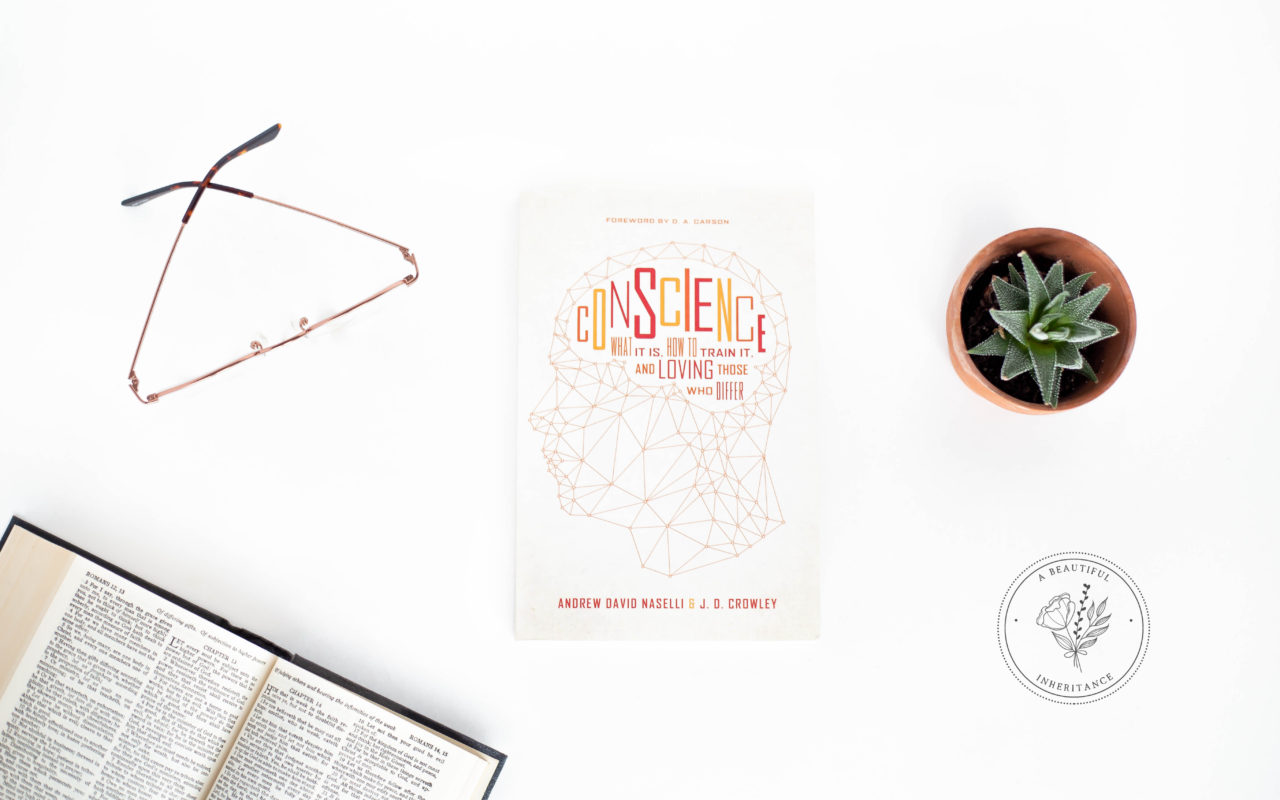I first came across the title Conscience: What It Is, How to Train It, and Loving Those Who Differ in this helpful article by The Gospel Coalition. I was familiar with one of the book’s authors, Andrew Naselli, from the book he co-authored with Jonathan Leeman titled How Can I Love Church Members With Different Politics Than Me? Although I hadn’t read anything by J.D. Crowley before, I am super thankful for his collaboration and perspective in Conscience. The authors begin the book by examining the use of the word ‘conscience’ in the Bible. They highlight various verses in which it is used and move from there to define the term. I really appreciate that they began the book this way because it generally seems that a lack of definition creates unnecessary conflict in conversations about deep matters. Establishing a definition was a great way to serve readers and help them more fully understand what the authors were writing about. The definition that the authors arrived at is, “The conscience is your consciousness of what you believe is right and wrong,” (pg. 42).
The authors helpfully explain that whereas under the Old Covenant, the people of God had guilty consciences because of their sin, they are now free because they have received the righteousness of Jesus. The authors articulated this beautifully when they wrote, “. . . now we can confidently approach God on the basis of Jesus’s definitive conscience-cleansing work on the cross. Now we can have a ‘clear conscience’ (Heb. 13:18). Only the cross can fill that ever-widening gap between your consciousness of what you ought to be and your actual obedience. As you mature in your faith, you grow increasingly in love with Christ and his gospel; you place your trust more and more in Christ to make you acceptable before God; and you wait with greater anticipation for the day when Christ will come back and make your obedience match your knowledge,” (pg. 51).
A good portion of the book is dedicated to conscience calibrating. On this topic, Naselli and Crowley help readers understand that the conscience can be hardened by the deceitfulness of sin, shaped by sources other than Scripture, or conform more to truth (pg. 64). I really appreciated that in Conscience the authors continually emphasized calibrating one’s conscience with the Bible. At one point, Crowley shared how his conscience convicted him about stepping over someone’s legs if the individual were sitting and resting their legs up somewhere. While most individuals in Western cultures wouldn’t think twice about such an action, Crowley’s conscience struggled because of his experiences in a culture where such an action would have been considered offensive. Bringing in this perspective was really helpful because it demonstrates the need to constantly consider Scripture and how one’s convictions align (or don’t align) with it.
Perhaps one of my favorite chapters was the one dedicated to how Christians ought to relate to one another when it comes to matters of the conscience. In this chapter, the authors stated, “Likewise, even though Paul agreed with the free group that all food and drink is allowable for a believer (Rom. 14:14, 20), he was so filled with Christ’s welcoming love that he happily (not grudgingly) gave up any personal preference if that might result in peace within the church or success in winning people outside the church to Christ. Around Jews he was happy to be strict. Around Greeks he was happy to be free. He didn’t count his freedoms or comforts as the highest priority but always asked himself these questions: (1) How does this particular action affect other believers? and (2) How does this particular action further the gospel of Christ? ‘Paul’s overriding concern in this passage,’ Moo observes, ‘is not with who is right and who is wrong. He is concerned about unity,'” (pg. 96).
Later in the same chapter, the authors gave helpful exhortations for individuals with both strong and weak consciences. I found their advice to those with weak consciences to be particularly helpful, “. . . those who are strict may be prone to an even more serious error, namely, insisting that everyone must hold their view in order to be a Christian. When you say that holding a particular view on a disputable matter is essential to being a Christian, you have crossed the line into legalism,” (pg. 113). The chapter concluded in an especially encouraging manner with the statement, “It matters how you treat those who disagree with you on disputable matters. When you welcome them as Christ has welcomed you, you glorify God,” (pg. 115).
Overall, I found Conscience to be tremendously helpful in learning how to calibrate my own and use it in a way that glorifies God and makes Jesus look beautiful. I highly recommend this book to anyone interested in the topic.
I received Conscience compliments of Crossway in exchange for my honest review.







